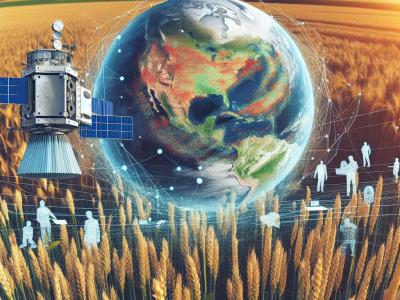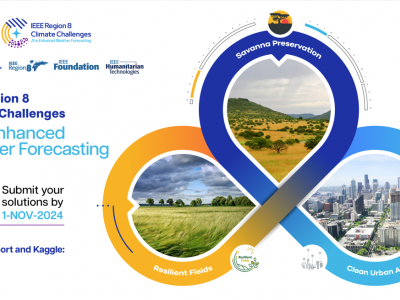Artificial Intelligence

"Recent advancements in deep learning and generative models have significantly enhanced text-to-image (T2I) synthesis, allowing for the creation of highly realistic images based on textual inputs. While this progress has expanded the creative and practical applications of AI, it also presents new challenges in distinguishing between authentic and AI-generated images. This challenge raises serious concerns in areas such as security, privacy, and digital forensics.
- Categories:
 194 Views
194 ViewsIn this research, a newly modified UNet (Fast-UNet) was implemented to segment winter wheat from time series Sentinel-2 images for the years 2021 and 2023. These images were converted to NDVI and utilized to identify wheat fields by tracking the wheat phenology from sowing to harvesting. The main satellite image that was used in this research was Sentinel-2. It is considered important, and free optical remote sensing satellite data is provided by the European Space Agency (ESA). Sentinel-2A and Sentinel-2B were launched in June 2015 and March 2017, respectively.
- Categories:
 202 Views
202 Views
The dataset is derived from the ADMET (Absorption, Distribution, Metabolism, Excretion, and Toxicity) domain, which plays a crucial role in drug discovery and development. This dataset comprises a comprehensive collection of chemical compounds with associated ADMET properties, providing a rich resource for evaluating the efficacy of machine learning models in predicting drug behavior. Specifically, the dataset includes diverse features representing molecular structures, physicochemical properties, and biological activity profiles, allowing for robust modeling of classification tasks.
- Categories:
 98 Views
98 ViewsTo download this dataset without purchasing an IEEE Dataport subscription, please visit: https://zenodo.org/records/13896353
Please cite the following paper when using this dataset:
- Categories:
 636 Views
636 ViewsDue to the lack of publicly available injection-molded product defect datasets and the diversity of defects in terms of shapes, sizes, and textures, we collects defect samples from injection molding factories to ensure the model performs well in real industrial scenarios. To ensure the quality and usability of the data, after analyzing the sample data, data cleaning is performed to remove the irregular images.
- Categories:
 97 Views
97 ViewsThe Unified Multimodal Network Intrusion Detection System (UM-NIDS) dataset is a comprehensive, standardized dataset that integrates network flow data, packet payload information, and contextual features, making it highly suitable for machine learning-based intrusion detection models. This dataset addresses key limitations in existing NIDS datasets, such as inconsistent feature sets and the lack of payload or time-window-based contextual features.
- Categories:
 735 Views
735 Views
We collected programming problems and their solutions from previous studies. After applying some pre-processing steps, we queried advanced LLMs, such as GPT4, with the collected problems to produce machine-generated codes, while the original solutions were labeled as human-written codes. Finally, the entire collected dataset was divided into training, validation, and test sets, ensuring that there is no overlap among these sets, meaning no solutions in two different sets that solve the same programming problem.
- Categories:
 27 Views
27 ViewsThis dataset was developed in the context of the NANCY project and it is the output of the experiments involving cyberattacks against services that are running in a 5G coverage expansion scenario. The coverage expansion scenario involves a main operator and a micro-operator which extends the main operator’s coverage and can also provide additional services, such as Artificial Intelligence-based cyberattack detection.
- Categories:
 215 Views
215 ViewsWe have created a dataset named FDA, which consists of diverse images of flexible objects collected from real-world scenarios or online sources. To the best of our knowledge, FDA is the first extensive, multi-category dataset specifically designed for the recognition of flexible objects. This dataset establishes a benchmark for evaluating the performance of models in flexible objects recognition tasks.
- Categories:
 56 Views
56 Views





